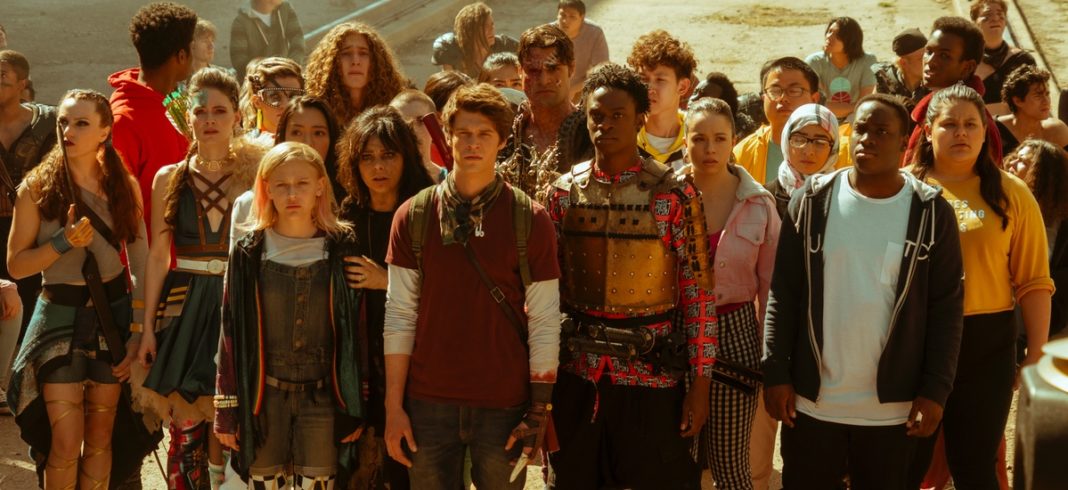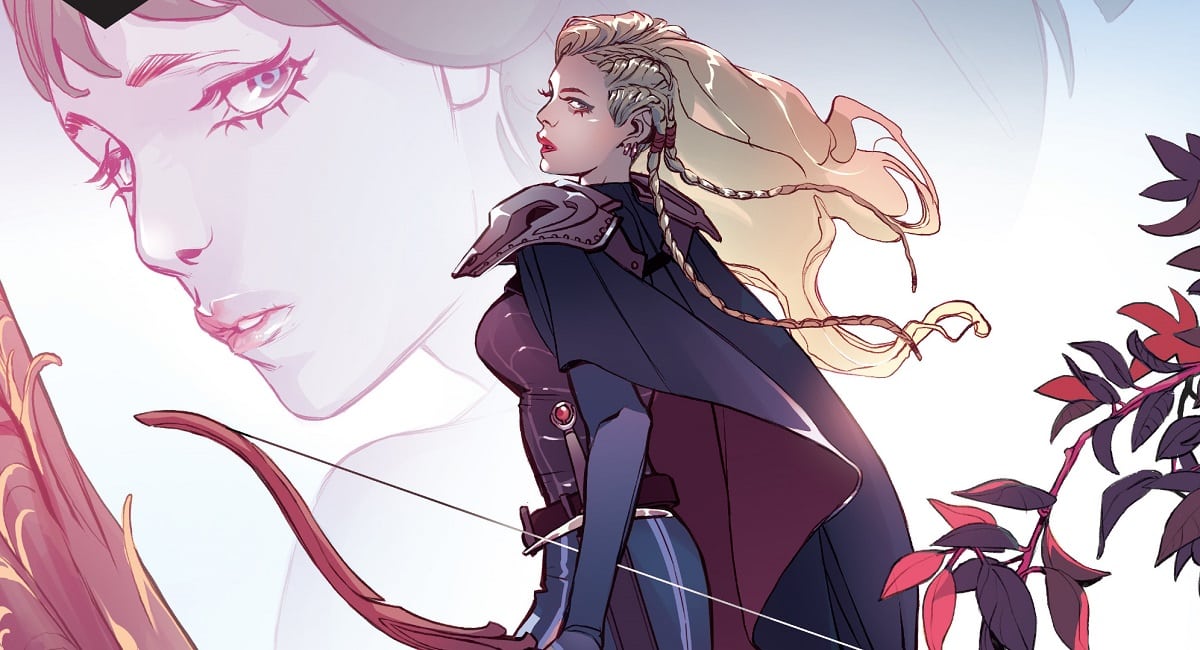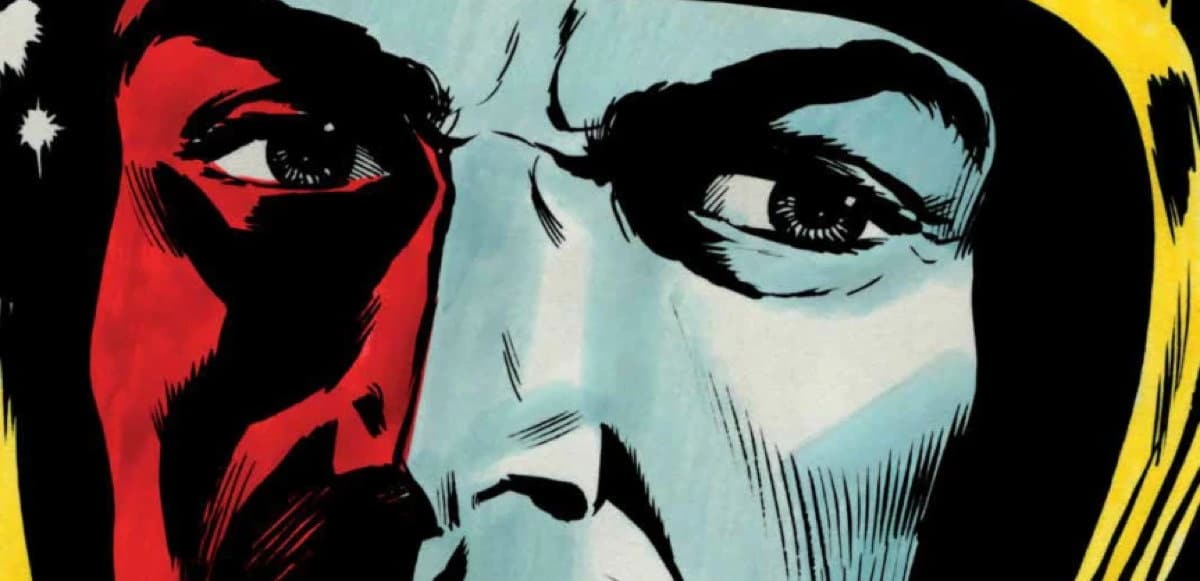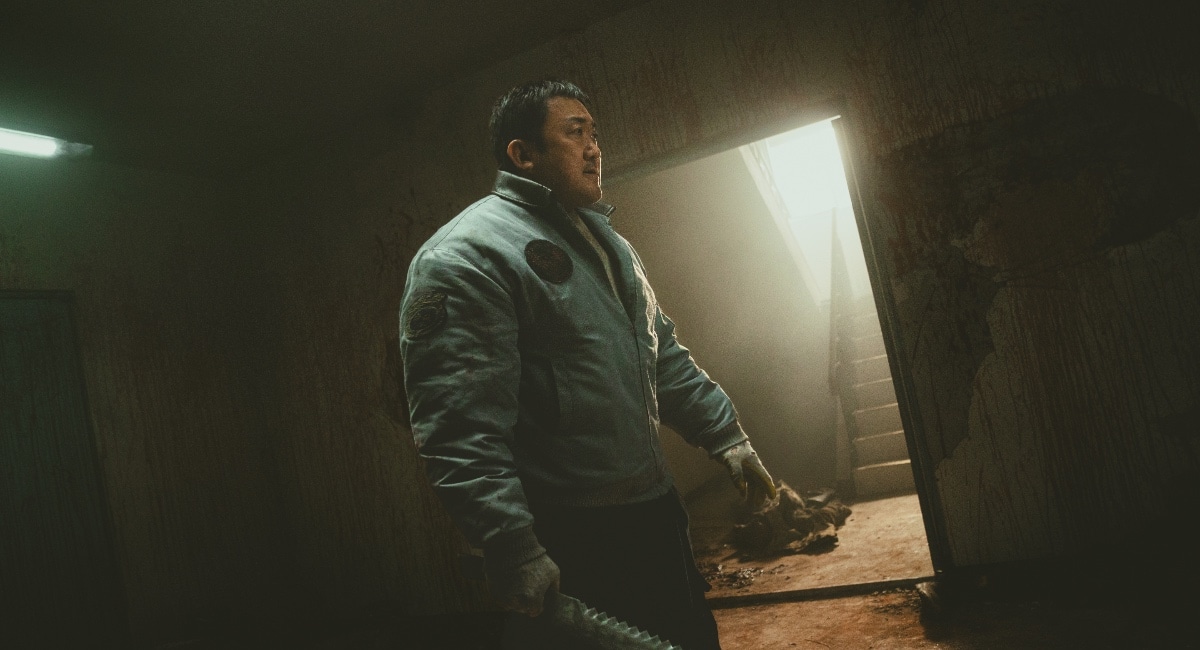Director Brad Peyton has been making movies and television for nearly 20 years, but he only really started to make a mark when his disaster film San Andreas, starring Dwayne Johnson, became a big hit for New Line Pictures; Peyton and Johnson reunited last year for their third film together, Rampage, based on the video game of the same name. Although Peyton has been making frequent forays into television throughout his career, he’s gone whole hog with his new series Daybreak for Netflix, based on Brian Ralph’s 2013 first-person, apocalyptic graphic novel of the same name.
Daybreak is a very different apocalyptic series based around a group of teenagers in Glendale, California trying to survive in the end times against “Ghoulies” and Mad Max-like gangs. Amidst that chaos, 17-year-old outcast Josh Wheeler (Colin Ford) goes looking for his missing girlfriend with a group of misfits including pyromaniac Angelica (Alyvia Alyn Lind) and his former bully Wesley (Austin Crute). Rather than being a grim horror movie, though, Daybreak is handled like a high school comedy with Matthew Broderick from Ferris Bueller’s Day Off (one of the classics) as the principal.
The Beat got on the phone with Peyton last week to talk about adapting Daybreak for TV, as well as a few other things he had on his plate, including a proposed movie based on the Image Comics series Skyward.
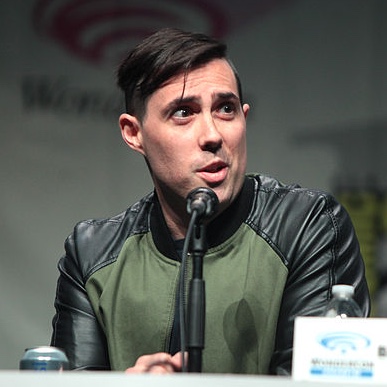
The Beat: I’m not sure when we spoke last year for Rampage that Daybreak was even on your radar.
Brad Peyton: This is a very strange story, but I optioned this book seven years ago before I did San Andreas and tried to turn it into a movie for like two years. Only after San Andreas did my producing partner Jeff [Fierson] lob the idea of, “Why don’t you try turning it into a series?” I was always complaining about having to cut stuff out and not being able to fit in all my ideas while doing my own version of the apocalypse. It took a long time to get going, and it didn’t really, really take off until we partnered with Aron Eli Coleite, who we met maybe two years ago.
The Beat: I’m always interested in the idea of an established film director directing the pilot episode or a few episodes of a series, but it sounds like you’ve been involved in the development of Daybreak from the very beginning.
Peyton: For me, there’s a lot of pride in the fact that I co-created the show with Aron, so it was just a very different in for me creatively, writing on the first two episodes and then directing the first two and then producing them with Aron and Jeff. Creatively, it was a completely different sensation, fulfilling in a different way than any of my other movies. This is far from a normal, “Oh, I read a good script.” No, it was like I found a book, and seven years later I got to co-write something and got to co-direct it. So yeah, it was very much a passion project and something that I’d lived with for a long time.
The Beat: How different has it been doing Daybreak as a series vs. your original idea of doing it as a movie?
Peyton: It’s very different, obviously, because a movie is an encapsulated story. I think that when you’re doing a movie, you think about the world outside of that movie, you think of the backstories and you think, well if there was a sequel where would it go? With a series, it’s all about the longest stories you can think. It’s really more about character, because the characters and developing the best characters are what kind of allows you to develop the biggest stories and the most complex arcs, and things that would take seasons to build out.
The show was kind of abnormal. I don’t know how strange people think the show is, but I know pitching it, because we pitched it as Ferris Bueller on bath salts — [that] was our basic pitch. So when you say that in a meeting, you either get people that go, “These guys are crazy,” or you get people to sit up and go, “Okay, say more.”
For me, it was about planning out and describing to Netflix how big the show could be, in terms of, it seems small because it takes place in Glendale and it’s about this small group of kids. But the world that I picture in my head is really, really big. Aron and I sat down and were like, “Well, what would five or six seasons look like?” And we talked a lot, not so much about plot, but just about the world and what we could possibly explore.
I have to say, the biggest difference for me between a film and a TV show is that on a film you are largely the captain. Every morning you get up and you are steering that thing, and it is on you to avoid pitfalls and maneuver. With a TV show, there was much more of a team atmosphere between my producing partner Jeff and the showrunner, Aron, and myself.
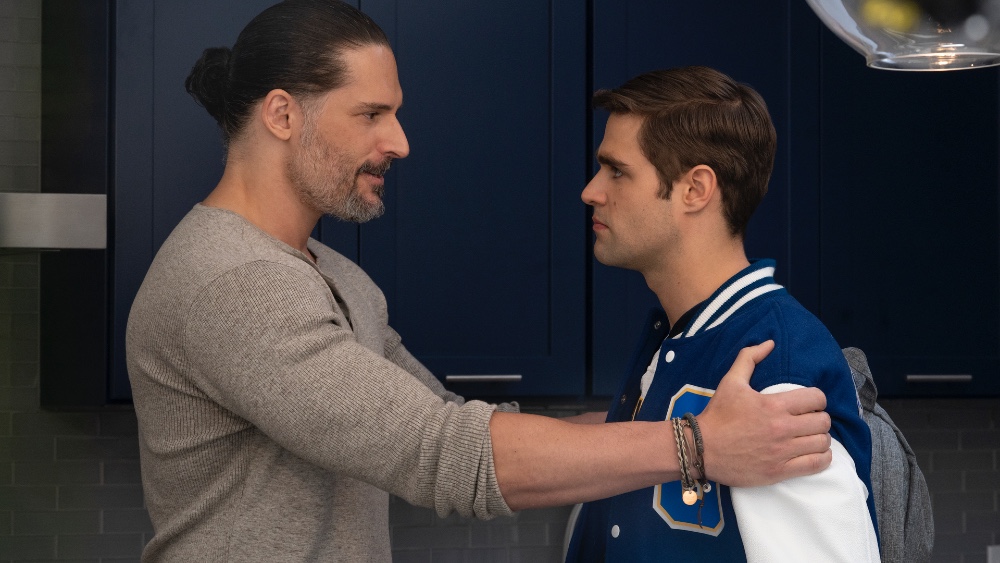
After the first two episodes — we broke at Christmas after those two — then Aron had to go on and produce the final eight episodes. I wasn’t directing them, so I was just supporting, and that’s very different from me. As a feature film maker, you are not in that position very often, where you’re support. Usually the support is coming from other people. This was very interesting, very different, very fulfilling, because it was three of us constantly banging ideas off each other. My producing partner Jeff is really, really funny, so he’s just constantly throwing jokes out there. That whole process was very unique compared to any movie I’d ever made.
The Beat: Were you involved with choosing the directors for the other episodes?
Peyton: I weighed in a little bit, but honestly it was mostly Aron and Jeff. They would ask me if I could I look at something, and I would look at it. I was trying to be supportive of Aron as the showrunner, because Jeff and I are also producing movies. It was like “You tell me what you need, and I’ll do everything you ask of me.” It was very much just me offering up anything I could do, so Aron would say, “What do you think of this director?” I would look at as credits and watch something and I’d tell him, “Well, I think this is his strengths, and these are things you should watch out for.” The same thing with scripts. I would kind of go, “This could be difficult to achieve. Here’s a way that you could it.” And a lot of visual effects, stuff like that. It’s just stuff where I’ve had a lot of experience in the film world, I could take those and translate over to how to make the show as cinematic as possible.
That came down to just doing the first two and choosing the style of lenses, and how the camera operates around the cast, and how much movement versus non-movement. All of those little visual things, I had a lot to do with that. I was just trying to be supportive of the bigger picture, because at that point, even when I was directing one and two, I still had read a lot of the scripts, so I knew where we were going. It was trying to establish something that other people could achieve and that we could make the best overall show.
The Beat: And Brian Ralph was involved as a writer as well on a few episodes?
Peyton: No, not as a writer. He is a ghoulie in an episode. He got involved by getting covered in blood and trying to kill some kids on set, but no, not as a writer. We’ve been talking to Brian about continuing on his comics, and right now he’s doing this really cool thing. I don’t know if anyone’s seen on Instagram, but he’s drawing, in his style, the characters that we created. He’s been doing it slowly, been trickling, in the last three days I think he put out an Alyvia, Angelica, Wesley Fists, and Eli. He’s done those three characters so far. It’s really cool to see that, because it’s in his style. We based this off his comic, but it’s characters he didn’t invent, so it’s just super-neat to see that translation.
The Beat: How do you go about casting the kids, since Daybreak is very dependent on that cast? It’s very much in the vein of Ferris Bueller or other high school-based projects.
Peyton: I work with this woman named Denise Chamian, who has basically cast all my movies. In sitting down with her, she read the first two scripts and she said, “This show is super specific, and what I think is going to happen is you’re going to see a lot of people that aren’t what you picture. And then as soon as you see what you picture, there’s going to be one of them. That’s it. You’re not going to have the choice between five people. You’re just going to see it and know it right away.”
That’s exactly what happened. I remember seeing Alyvia who plays Angelica, and as soon as I saw this 11-year old swearing, talking like a sailor, I was like, “Oh my God, this is unbelievable. We’re never going to find someone this good.” That’s sort of what happened. Denise was right. We would just basically find the one person that was perfect, and it was just done. You never had to question.
The only one that was completely strange was Matthew Broderick, because we wrote it for Matthew, but he has a reputation of saying no to everything. When we went to Denise and we said, “We wrote this for Matthew. We think it’s perfect because it nods to Ferris Buellera little bit, but it’s a really distinct role for him, and he’s just never played someone like this before. What people see of him in the trailer is just scratching the surface of what he actually becomes.” We were told not to get our hopes up, and then oddly enough, we sent it to him and he got on the phone with us. He complained that we swore too much, but besides that, he loved it.
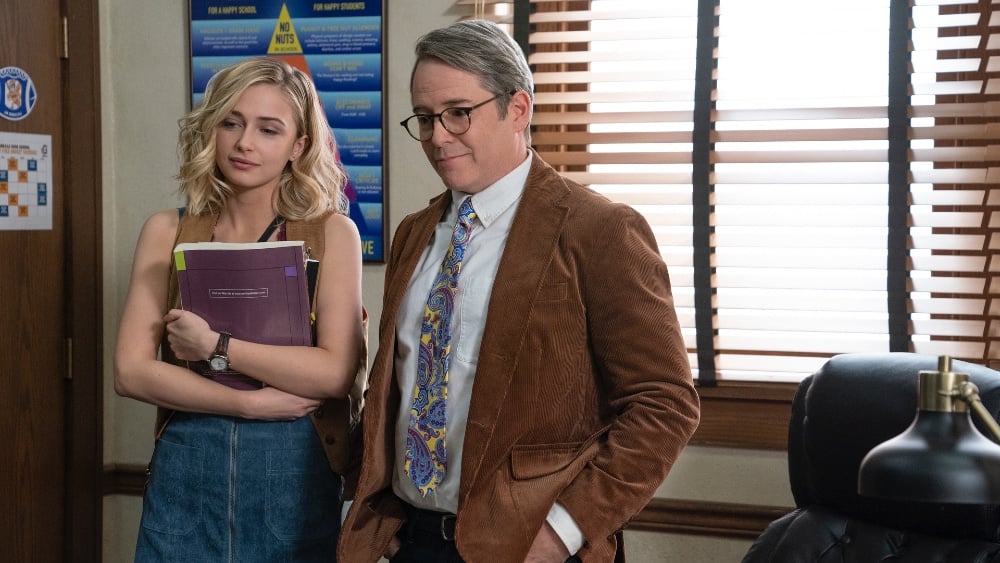
The Beat: I was going to say that if you’re going to lean into the Ferris Bueller stuff, you might as well get Ferris Bueller.
Peyton: I just loved the nod, because for Aron and Jeff and I, this is what we grew up on. Some kids don’t really know Ferris Bueller as much as others, but for the people who are not 16 or 12 or whatever, watching the show, this is kind of perfect. It’s self-aware to know that this is where it was born, in this kind of John Hughes world, and that was really fun for Aron and I to get to do.
The Beat: Daybreak has a very specific tone of humor, which surprised me because I don’t remember there being that much humor in San Andreas.
Peyton: Well, there’s a little bit of humor. The tone is very, very real in San Andreas. Like the lighting is real and it’s very dire, but I haven’t done anything this comedic since I was in my early twenties. I did a really dark short film about a little dead girl that tried to will herself back to life, which was really kind of silly and dark and humorous. I hadn’t really done anything this kind of fun in a long time, but I just was at the point in my career where I’ve really wanted to do that. I was like, I want to do something completely original, based on something I completely believe in that I’ve crafted for a long time and thought about for a long time.
It was a little demoralizing when you’re trying to develop it and you can see it, but other people can’t see it. I know I can balance these things and that I can figure this tone out, because it seemed very organic and very obvious to me. Aron and I talked about this a lot. We would always say, “Man, why do people have a problem with this tone? Because it’s really obvious.” To me and him, it was very, very clear what it was supposed to be. For me, it was instinctual, it was just an organic, “Oh, I know what this is, I can do this.” When we had to intellectualize it and break it down and understand it to communicate it to other people, what it came down to was three things, which was balancing the humor, the gore and the heart.
The heart of the story and the heart of the characters, the emotion, is what makes it real, is what grounds it so that you never think this is totally slapsticky and totally ridiculous or just fluffy nonsense.
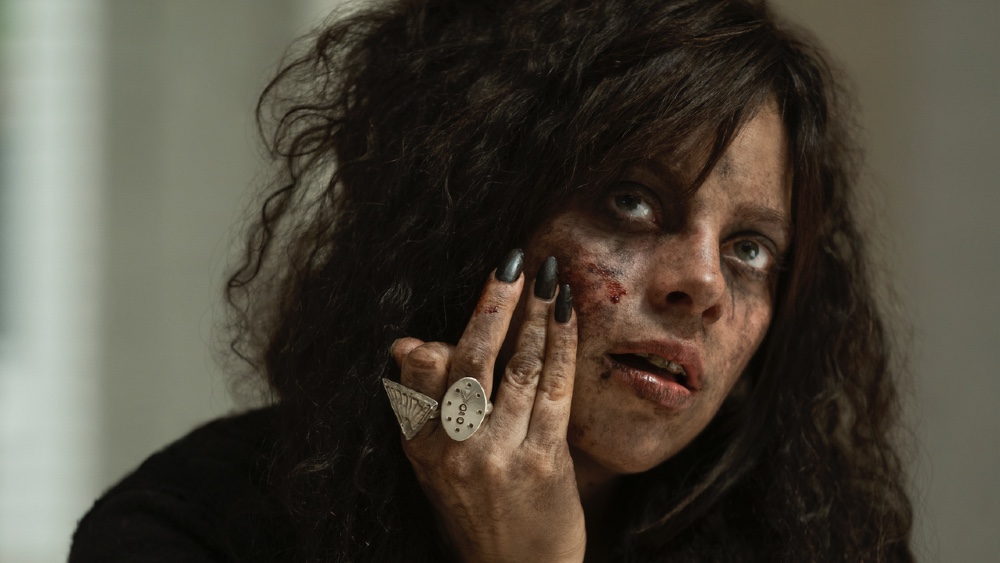
At the same time, we had zero interest in doing a straight apocalypse story or a straight zombie show, or anything like that. First of all they exist, they’re fantastic, but we don’t want to do that. This show, for me in a lot of ways, was rebelling against all the very straight apocalyptic zombie things, because it just didn’t really make sense to me. I always complained to the guys, “You go watch an apocalyptic movie that takes place a hundred years in the future, and everyone’s wearing leather and cowhide. There’s not pair Nikes in there.”
I would say to them, “If the apocalypse happened tomorrow…” And you’ve got to remember, when this first was coming together, I was at the very beginning of my career and I couldn’t afford nice sneakers, and I really wanted a pair of nice sneakers. I used to always joke with my friends, I was like, “If the apocalypse happens, I’d run down to the mall and steal the nicest pair of Jordan 1s I could find.” And that humor is what kept us away from being too serious.
Then the gore element was just … There’s going to be scares. It is still an apocalyptic story. There are still mutants and zombies, and all that stuff that you see in all the tropes of apocalypse shows and movies. I grew up watching Mad Max and all the B movies, Frogtownand all that kind of crazy stuff when I was a kid. So for us, the tone really came down to balancing humor, heart, and gore, and juggling those three elements is really what the show’s tone is about.
The Beat: You’ve been bouncing around between television and developing movies, so are you still developing something based on Joe Henderson’s Image series Skyward with him?
Peyton: No, I had to step away from it for really stupid “businessy” purposes that have nothing really to do with me or Joe. I love Joe and I still love those comics. I really hope that it gets made, but it just didn’t work out in terms of all the mucky-mucks talking and getting all that stuff done.
The Beat: How about that San Andreas sequel you were once developing? Is it a matter of waiting for Dwayne Johnson to be available since he’s always doing so many back-to-back movies?
Peyton: It’s all about Dwayne’s schedule. That’s the thing. He’s so busy with so much stuff. I definitely want to work with him again – he’s awesome, and he and I get along really, really well, obviously. For me with Dwayne, it’s just really fun to push each other, and to just try to outdo each other, and do stuff that we haven’t seen before. I think that with San Andreas, it’s a challenge, because I said, I don’t want to repeat myself. I don’t want to just do San Andreas 2 and it be the same as San Andreas 1. There’s that challenge of what do you do that you haven’t seen before that doesn’t exist in this space? We have some ideas that I think can achieve that, and then it’s just about the big man getting some free time.
The Beat: You worked with Jason Momoa on Frontier, so have you ever talked to him about doing something else together?
Peyton: Yeah, Jeff and I are producing his next movie right now for Netflix called Sweet Girl, which is going to camera in a couple of weeks in Pittsburgh. We’re really excited by that. We love Jason. He’s an awesome guy. Also, his schedule is getting crazy, but there’s one project that I’m not at liberty to talk about that … I’m not directing that. A guy named Brian Mendoza’s directing it. Jason and I had been talking about one project in particular that I really want to do with him.
The Beat: Are you still developing that Black Hole movie we spoke about last time?
Peyton: No, I’ve stepped off of that. I’m very deep into another movie that I don’t want to talk about yet because it’s not official, but it’s at the one-yard line kind of situation.
The first season of Daybreak is now streaming on Netflix. For more from the cast, check out our Ani Bundel‘s coverage of the New York Comic Con Daybreak panel.


